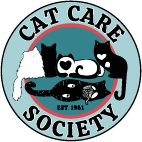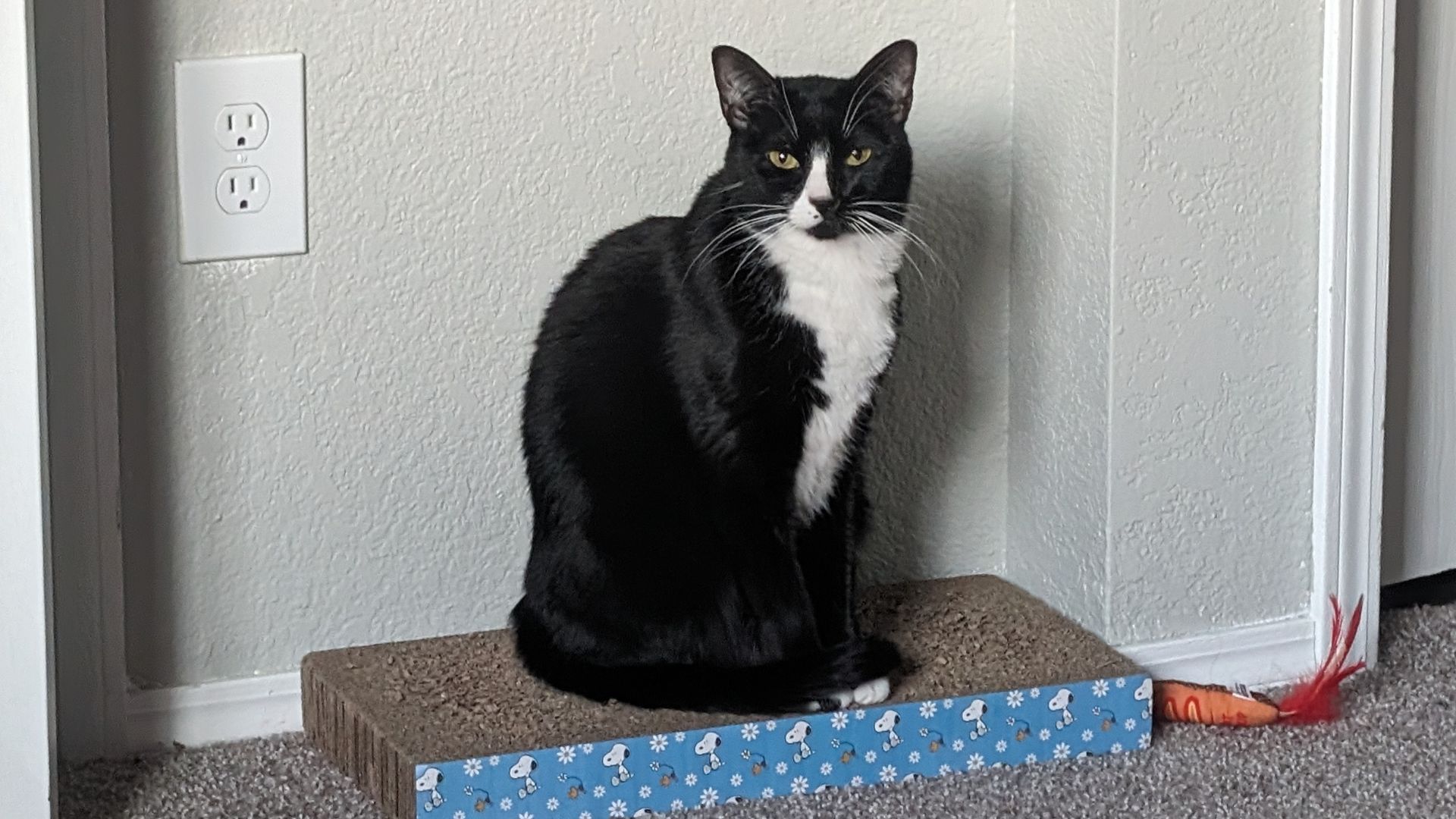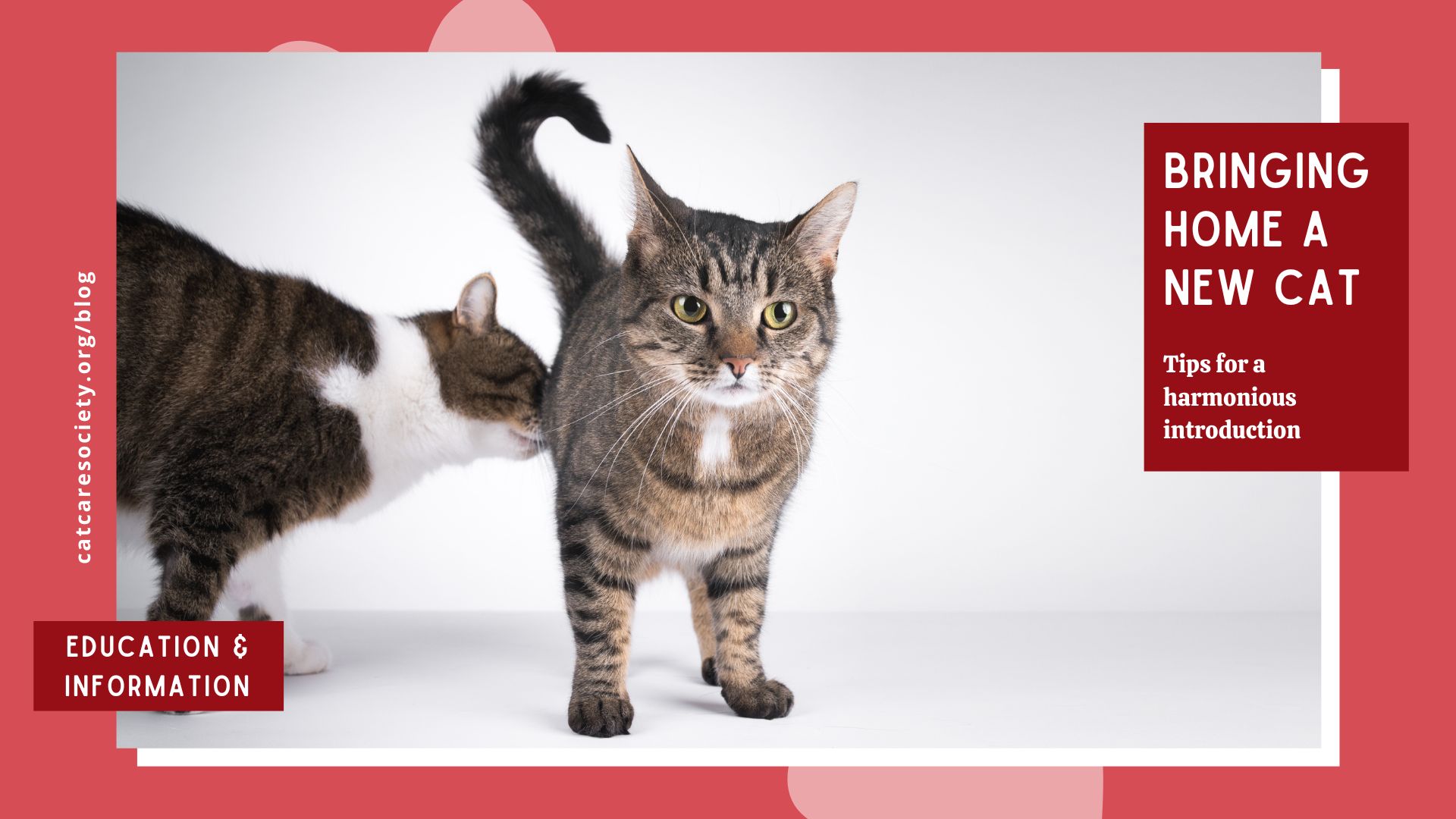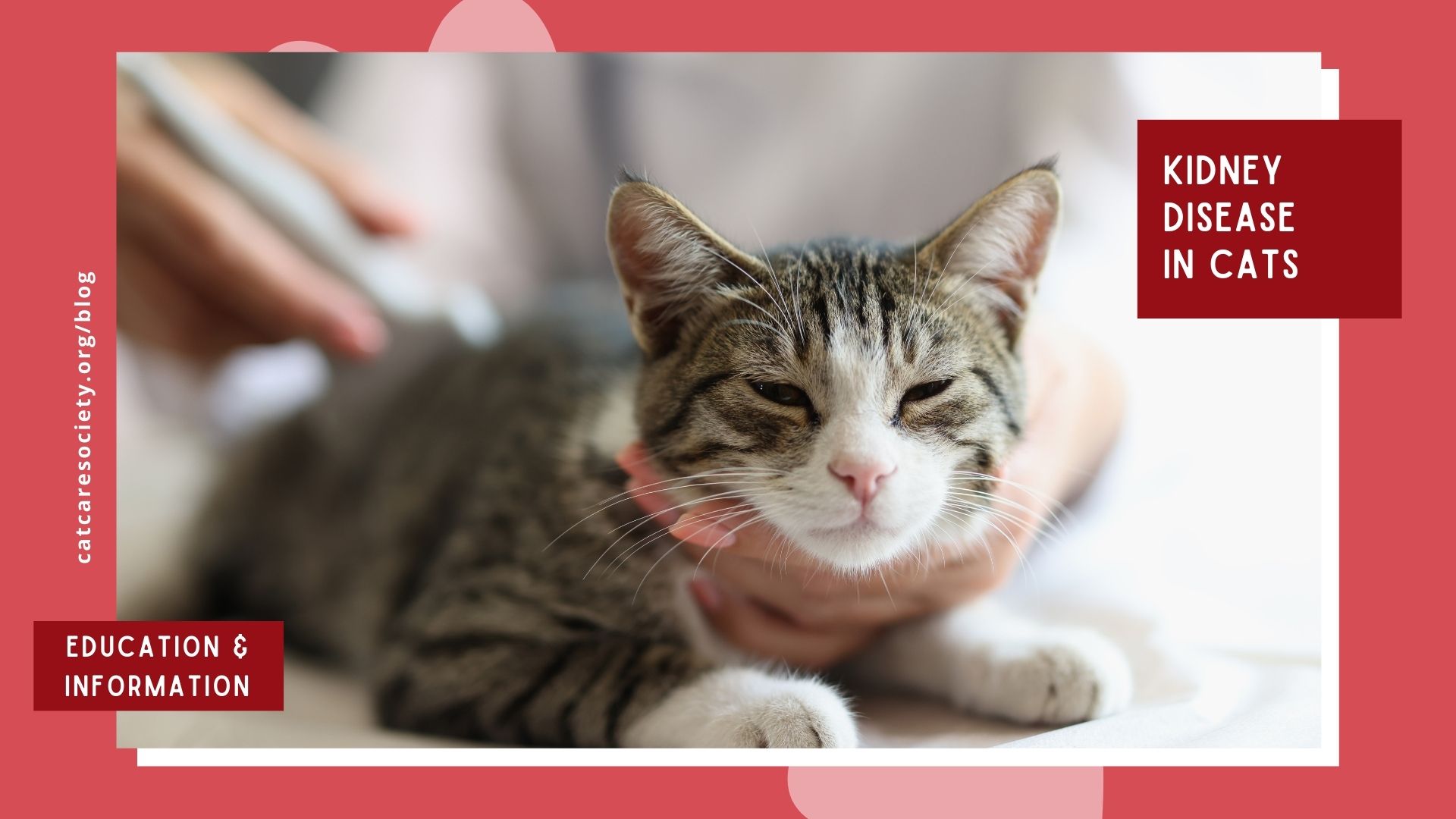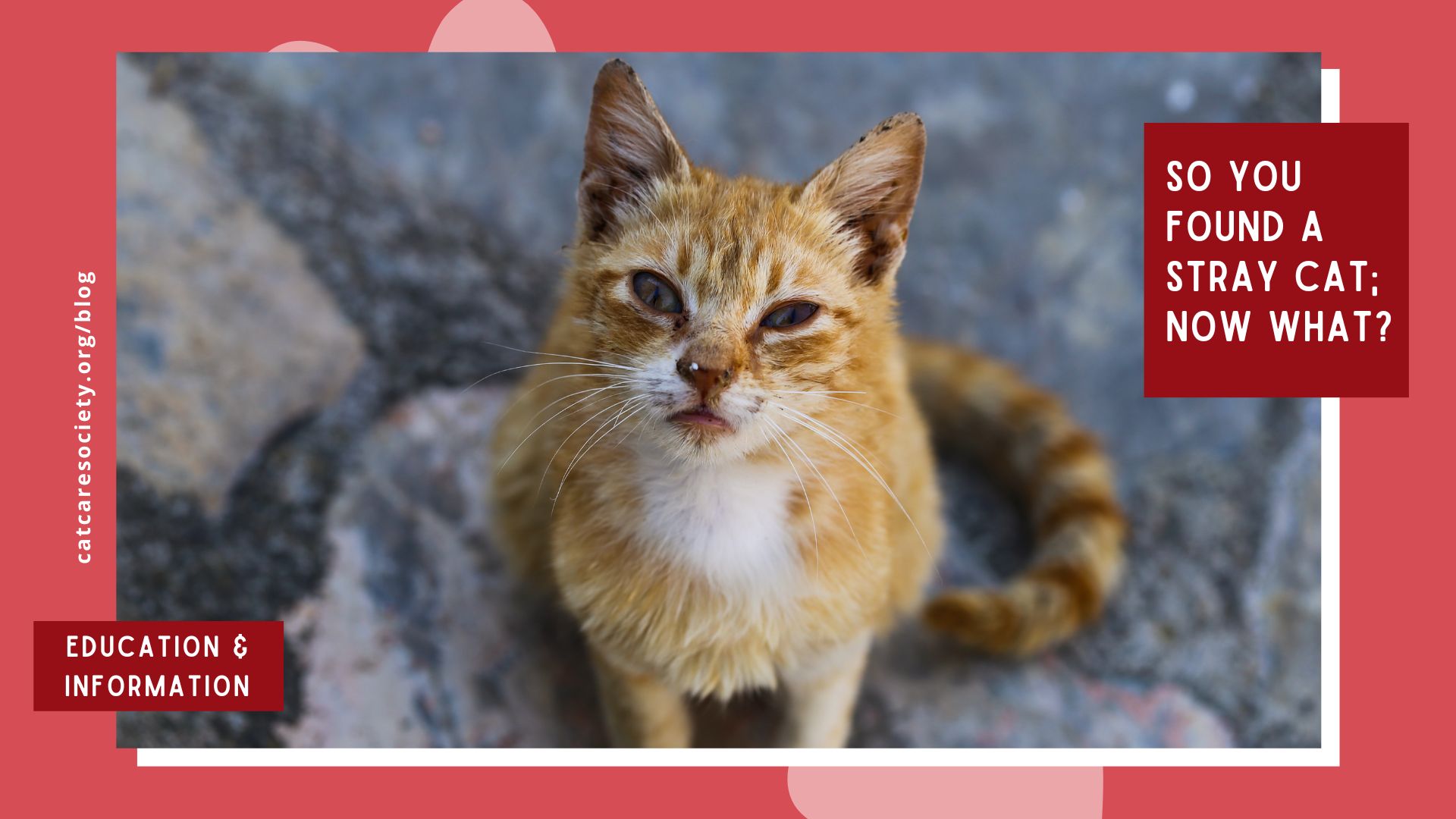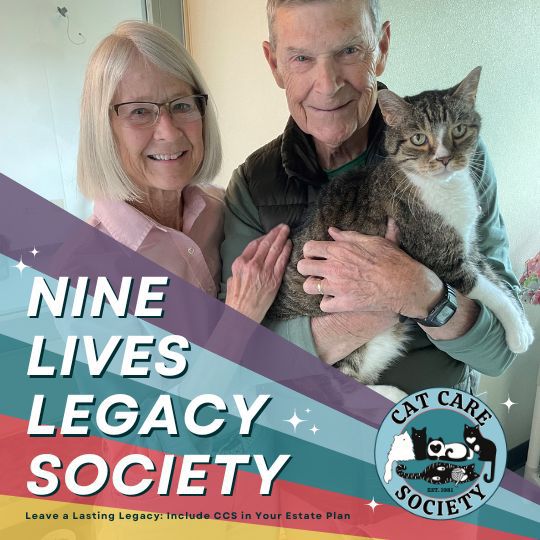At Cat Care Society, we know that caring for cats is a team effort—and one of the most important parts of that team is our foster network. While our shelter provides safe, dependable housing and veterinary care for hundreds of cats each year, foster homes offer something we can’t always replicate within our walls: a quiet, individualized space where certain cats can truly thrive.
Foster homes complement the work shelters do. They enable us to have a flexible and responsive system that helps more cats heal and grow, and they allow us to stretch our resources further, provide individualized support to vulnerable cats, and ultimately increase each cat’s chances of getting adopted.
Below are just a few of the ways that foster homes support shelters and countless cats, both directly and indirectly!
1. Some Cats Simply Do Better in a Home
Shelters provide a lifesaving refuge for cats, offering medical care, nutrition, protection, and enrichment. But for certain cats, especially those with special needs, a home environment can offer extra support that helps them recover, adjust, or grow in ways that a busy shelter environment might not allow.
Foster care can be beneficial for:
- Kittens who are too young or fragile to be in a shelter setting.
- Mothers and their new litters who need space, quiet, and calm.
- Shy or undersocialized cats who need time to build confidence at their own pace.
- Cats recovering from illness or needing medical care—such as diabetes, ringworm, or panleukopenia—benefit from extra attention and a calm environment that supports healing and wellbeing.
- Senior cats who may appreciate a calm, cozy space outside the hustle and bustle of shelter life.
- Cats who come to CCS as a part of our temporary care program are used to being in a home and may do best away from the shelter.
These cats benefit from one-on-one attention and a stable environment where they can relax and show their true personalities.
2. Foster Homes Help Us Help More Cats
Foster care expands a shelter’s capacity. Every cat that goes into a foster home opens up space in the shelter for another animal in need. This is a critical part of how shelters operate, especially during busy seasons when intake numbers rise.
Fosters also allow shelters to:
- Provide individualized care without overextending onsite staff.
- Isolate cats with contagious conditions to protect the general population.
- Support community members in crisis by offering temporary care for owned cats.
Foster care is not a separate system—it’s part of CCS’ toolkit, allowing us to stretch our impact and offer flexible, creative solutions when cats need them most.
3. Foster Homes Prepare Cats for Adoption
Cats in foster care often show their true personalities more readily than they might in a shelter. This helps CCS provide more information to potential adopters get a clearer sense of whether a cat is the right fit for their home.
Foster homes play a critical role in:
- Observing behavior and habits to help match cats with adopters.
- Helping shy cats come out of their shells with gentle socialization.
- Establishing routines for cats who may have never lived in a home before.
The result? Cats who are more confident, better understood, and great candidates for adoption!
Strawberry: A Foster Success Story!
Strawberry (shown at the top of this post) came to CCS as an extremely fearful cat who demonstrated this fear with aggression. We’re talking about spitting, hissing, growling, and lunging at CCS staff, completely unprovoked. A medical workup ruled out any underlying medical conditions that could be contributing to the behavior. Strawberry was a great candidate for a quiet foster home where she could have space, get comfortable, and work on socialization at her own pace.
In just over a week, a report from the foster stated that Strawberry had become a lap cat, was accepting and demanding pets, and had begun giving “head boops” or bunting, which is one way cats show affection. The foster was also able to quickly pick up on Strawberry’s motivations, favorite toys, and preferred ways to receive pets which accelerated Strawberry’s comfort level and ability to socialize. With patience and gentle care, Strawberry came out of her shell and built a lot of confidence.
After just under two months in the foster home, Strawberry came back to the shelter and was adopted a short time later!
Closing
At Cat Care Society, we’re proud to offer a safe, well-equipped shelter environment for our cats. But we also recognize that cats, like people, have individual needs. Foster homes allow us to meet those needs with compassion and flexibility.
Foster homes don’t replace shelters—they enhance them. Together, we’re able to give each cat the kind of care that works best for them. Whether it’s a cat recovering from surgery, a shy kitten learning to trust, or a beloved pet temporarily staying with us while their owner gets back on their feet—foster care gives us options. And options save lives and produce the best possible outcomes.
We’re incredibly grateful for our foster caregivers and the role they play in this mission. Because of them—and in partnership with our shelter—we’re able to do more, reach farther, and help every cat get one step closer to home.
Ready to Foster?
Foster homes are the quiet heroes of the cat rescue world. They don’t just provide temporary shelter—they provide special cats opportunities to heal, grow, and shine. Their impact can’t be overstated: they help shelters run more effectively, improve outcomes for individual cats, and create a more compassionate, responsive animal welfare system.
At Cat Care Society, we are deeply grateful for every person who opens their home to a cat in need. If you’re interested in becoming a foster, please apply! We’re especially looking for fosters willing to take in cats with medical needs, those needing behavioral support, mother cats with litters, and young kittens. CCS provides all necessary training and support, including costs for your foster cat’s needs from food to medical care.
About the Author: Beth Dokolasa is a volunteer for Cat Care Society and serves on the Board of Directors. She is an instructional developer for Natural Grocers and lives in Indian Hills, Colo., with her husband, daughter, and two cats, Techno and Digit.
